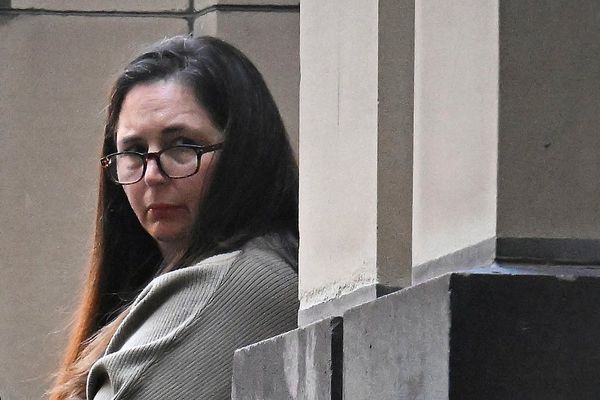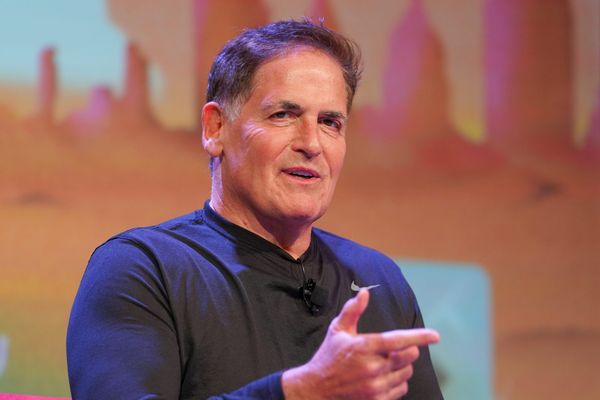
Australian cities have an abundance of affordable, subsidised and often free homes – but only for cars.
The parking expert David Mepham is part of a chorus of urban planners around the world who say the land devoted to vehicles contributes significantly to the housing affordability crisis.
On Friday those frustrated with what they see as wasteful spending and land use will put coins in meters and repurpose car parks into public parks and social spaces as part of international park(ing) day.
Many will roll out AstroTurf and set up deck chairs, or install art spaces with shade canopies. It’s much cheaper than renting a space in the city – and that’s part of their point.
“People look on with outrage that it’s wasting a parking spot, but it challenges this sense of entitlement we have for cheap and convenient parking,” Mepham says.
“And it allows people to see [these spaces] as high-value public land that can make our streets more pleasant.”
Mepham believes blindness to parking – where “we only see it when we need it as a driver” – means people don’t realise the opportunity cost in terms of amenity if such valuable public land was reclaimed.
He says the way businesses and residents embraced on-street dining amid Covid restrictions, only for those spaces to be later removed, shows how the urban environment has been “decimated by parking”.
And as Australia’s housing crisis worsens, Mepham – author of the forthcoming book Rethinking Parking – is frustrated that “our love of parking” is not being discussed as part of the problem or the solution.
He says minimum parking spot requirements are adding significantly to the cost of building – and buying – new homes in inner-city areas.
Housing strategies in cities such as Sydney and Melbourne are shifting away from urban sprawl in favour of increasing density near existing transport and shopping hubs, through building terraces and low-rise apartments. But with this approach, the minimum parking requirements are becoming increasingly expensive.
“In a high-density area the cost of parking increases underground the deeper you have to excavate,” Mepham says. “If you’re building an affordable unit, to build the required underground parking for that unit could easily be up to $100,000 per spot in Sydney.”
He says for units with more than one parking space this could be adding 20% to 25% to the cost of a home at the affordable end of the market.
“I think many people would rather have a home without a garage than no home at all,” he says.
“When there is transparency around the cost of it, when they have the option of not paying for that parking, they may choose to primarily use public transport.”

Mepham believes minimum car parking requirements near transit hubs should be replaced with maximum limits and in some instances allow affordable units to be built with no dedicated parking.
He says Australia imported parking minimums from the US but now some of those cities are removing them amid similar housing supply issues.
If Australia is to get serious about housing, the conversation needs to go beyond funding and supply issues, Mepham says. “ It can’t just be a $10bn Haff [Housing Australia Future Fund],” he says. “It has to also be making sure homes [near] transit options and main streets can be built and priced affordably.”
Do we need the ‘rockstar’ car park?
Parking spaces aren’t just making homes more expensive and engendering car dependency, Mepham believes. Our expectation for a convenient parking spot near our destination is also choking the roads.
“One hundred years ago when you owned a car by definition you were very wealthy and had a sense of entitlement that the car was going to bring convenience.
“We still … think we can get the rockstar car park out the front of the shop, that we shouldn’t have to walk far, but it’s unrealistic.”
Australian cities have a parking abundance; there are multiple spots for each car owned. Even New York City has about two spots per vehicle.
But the expectation of a convenient space leads to drivers circling blocks for that “rockstar” spot, contributing to excess congestion.
Mepham estimates that at peak times in Sydney and Melbourne as much as half the traffic could be drivers looking for a place to park, and this figure could be 15% to 30% at other times. His calculations are based on global research conducted by the US parking guru Prof Donald Shoup.
“If public transport users can walk, drivers should be able to walk 15 minutes to a shop or restaurant,” he says.
“And if there weren’t as many drivers on the streets circling, looking for a park, that 15-minute walk wouldn’t feel like it’s a stroll through shitsville.
“It could be a nice walk … with wider footpaths and shorter waits to cross the road.”
Mepham believes there is still a place for parking lots, but that they shouldn’t be built and subsidised as a design feature of destinations such as the CBD – but rather a walkable distance away to reduce traffic and incentivise public and active transport.
Crucially, he thinks governments should not subsidise this parking because the true cost to society is reflected only when private car park providers set the prices needed to recoup their investment.
Pricing parking more accurately would change expectations about the practicality of driving over public transport, he argues.
But he concedes it is a political challenge to change attitudes around parking. “Politically it’s quite difficult to change, because there’s an anxiety there about parking. We’ve all felt it. When we drive somewhere we think, where are we going to park?
“That anxiety feeds into the political process. It’s intensely emotional.”







